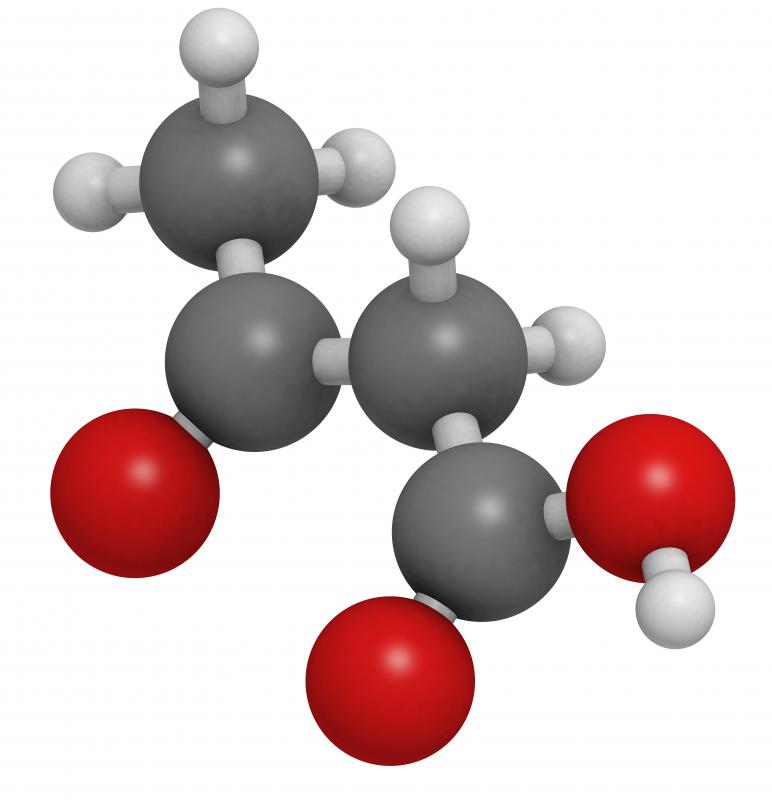At TheHealthBoard, we're committed to delivering accurate, trustworthy information. Our expert-authored content is rigorously fact-checked and sourced from credible authorities. Discover how we uphold the highest standards in providing you with reliable knowledge.
What Is the Difference between Ketosis and Ketoacidosis?
Although it may sound like they mean the same thing, there is a big difference between ketosis and ketoacidosis. Still, these two terms are often confused with each other. Aside from possessing the same root word, the misunderstanding is likely due to the fact that ketosis and ketoacidosis are both metabolic processes that involve the breakdown of fats in the body. However, ketosis is a normal metobolic function. Ketoacidosis, on the other hand, is a life-threatening medical condition of particular concern to those with diabetes type I.
Ketoacidosis is a state of toxicity in which there are elevated levels of acids called ketones in the blood. This condition occurs when insulin levels are too low and the liver attempts to restore energy by metabolizing fats and proteins due to a lack of available carbohydrates. Since ketone acids slowly degrade into acetone, the breath often smells fruity or similar to nail polish remover. Without immediate medical attention, this condition can induce a diabetic coma and, possibly, death.

Ketosis also occurs as the result of the liver burning fat for energy and producing ketone acids as a by-product. However, this state is often facilitated by the intentional withdrawal of carbohydrates as a primary fuel source in favor of proteins. In fact, many members of the medical community refer to diet-induced ketosis as an act of willful starvation. If a low-carbohydrate, high-protein diet sounds familiar, it’s because this is the basis of a very popular weight loss program known as the Atkins Diet. Such diets call for 30-50 percent of the total calorie intake to come from protein in order to kick the metabolism into gear to burn fat.

While diets such as Atkins do seem to promote weight loss, there are a number of hazards that may be associated with keeping the body in a state of ketosis. For one thing, it may put stress on the kidneys and eventually lead to kidney disease or failure. This is not confirmed, however, and research is ongoing. Some studies show that elevated cholesterol levels are linked to diets high in protein, as well as an increased incidence of cancer. The latter consequence may be the result of being deprived of antioxidants rather than the effects of ketosis. Research on the subject is ongoing.

Some health and medical experts contend that a low carbohydrate diet may help improve certain conditions, including obesity. For instance, the American Academy of Family Physicians and the American Diabetes Association now recognize “low-carb” diets as a suitable approach to weight loss. However, these organizations also express concerns about the long-term effects. In contrast, the American Dietetic Association, the National Academy of Sciences, and the American Heart Association strongly oppose low-carb diets due to the risks associated with ketosis. In fact, they recommend a minimum of 3.75 ounces (100 grams) of carbohydrates per day to avoid ketosis.

Understanding the distinction between ketosis and ketoacidosis is crucial for anyone considering or currently following a keto diet. Ketosis is a natural metabolic state that can lead to weight loss and other health benefits when managed properly through diet. In contrast, ketoacidosis is a dangerous condition that typically affects individuals with diabetes and requires immediate medical attention. By being informed about these differences, individuals can make educated decisions about their health and ensure they are pursuing nutritional strategies that support their well-being without putting them at risk.
AS FEATURED ON:
AS FEATURED ON:


















Discussion Comments
I don't think I'd be as naive as to suggest that they don't like change but rather that they are metaphorically 'in bed'' with the food industry. You may be shocked to find that the food, confectionery industry spend a fortune paying for university studies.
Remember that, no matter how independent you think research may be from educational institutions, it's largely paid for by the food industry. Draw your own conclusions from that.
the hcg diet is amazing with the shots of hcg and the way the program is explained it has been easy to follow and i do not feel hungry at all.
I'm diabetic II and if I were to consume 100g of carbs a day I would definitely have to take medication to keep my sugar under control: No thank you! I think the ADA would be wise to educate instead of throw the whole low carb out the window. Sounds like ADA is made up of a bunch of old fuddy duddies who don't like or can't handle change - even if it is for the better!
Post your comments